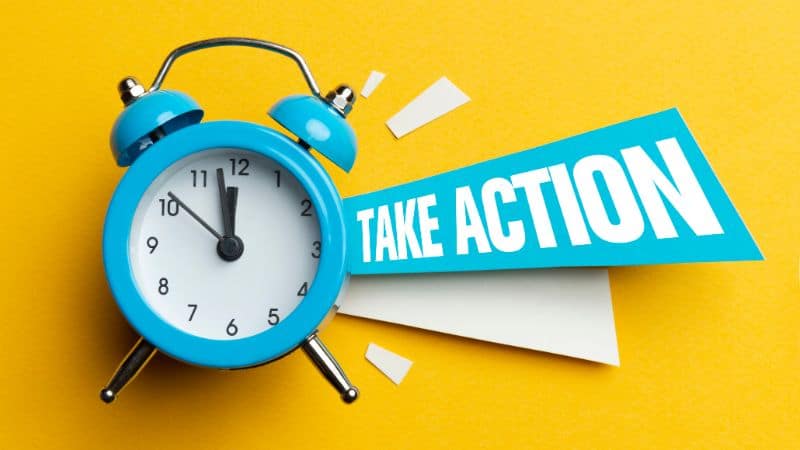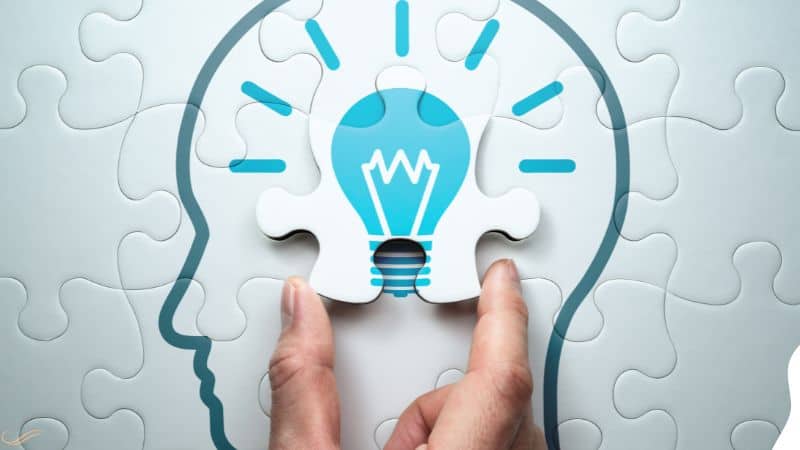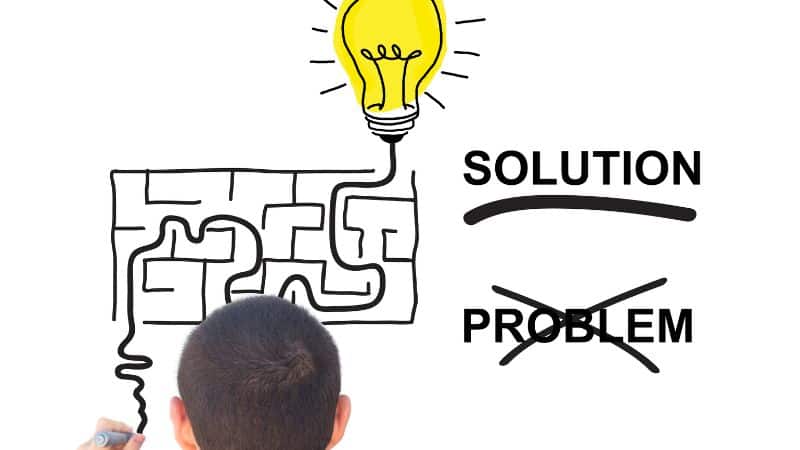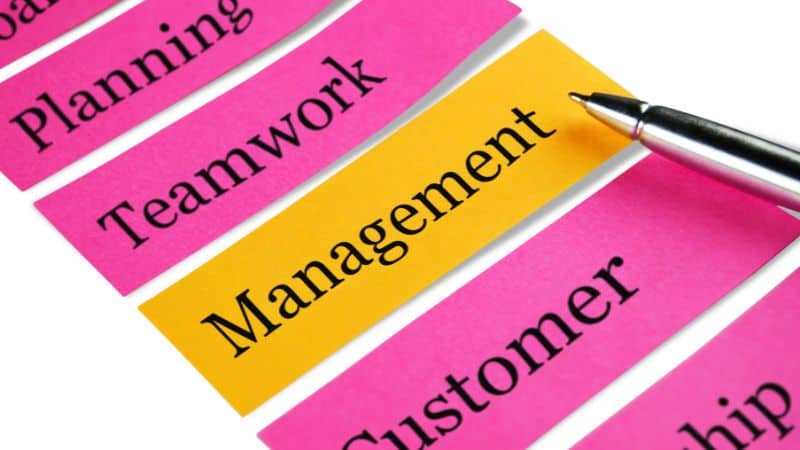Your leadership skills greatly influence your performance as a leader. You certainly can use your unique talent and strengths to get started as a leader. But if you want to be effective in delivering results, you need to increase your ability to lead. Leadership skills can be learned.
You don’t have to master all these 28 skills for leaders. In fact, you can start with one or two. I am presenting these skills to show you the many opportunities for improvement.
For those who have been leading people for decades, you can still improve. Many of the leadership skills we learned 10 years ago, may no longer be what we need today.
Some leadership skills are more important than others in specific functions and situations. It is essential, therefore, to identify the crucial skills you need to perform at your best today and years from now.
Take inventory of your skills. Use and optimize those skills that you possess. Then, work on others you don’t have yet when necessary.

What are leadership Skills?
Leadership skills refer to the learnable abilities that enable leaders to perform at their best and achieve their goals. You can acquire leadership skills through experience and deliberate training. It is one of the most crucial soft skills.
In a VUCA world, leaders may sometime often lead in the dark because the situation is ever-changing. Some leadership skills which are highly-important decades ago are now obsolete. Universal skills like communication and interpersonal relationships remain relevant but are now used in different ways.
And leaders need to learn skills that will become more relevant for the next ten years.
To help leaders build on their skills, I am creating email series that explains how to make each skill work for you.
In this article, I will explore the leadership skills that will be relevant today and in the future.
Leadership training can help you create limitless possibilities. I recommend you explore the training programs I offer to managers, supervisors, and team leaders.

28 Key Leadership Skills
In my experience, a leader does not need to possess all these leadership skills. At times, you can leverage the skills that your direct reports have.
Explore the following leadership skills.
Great leadership isn’t an event—it’s a habit. Get actionable leadership habits every Monday and Thursday.
Accountability
Accountability is the obligation or willingness to be answerable for an outcome. Leaders with accountability show ownership of their results. They don’t wait for people to tell them what to do. They don’t blame others for their mistakes. They do not procrastinate in doing what’s right.
When a leader has a strong sense of accountability, everyone can sense it. It is infections. It is attractive.
Accountability builds team cohesion, trust, resilience, and confidence. It increases not only your team’s performance. It makes you proud to be associated with people who hold themselves accountable.
Make yourself an accountable leader. Start by figuring out which of the following behaviors you can develop into a habit.
- Own your actions and decisions, and avoid blaming others for mistakes or failures.
- Be honest and transparent with your team about your actions, decisions, and intentions.
- Take responsibility for the outcomes of your actions and decisions, and learn from both positive and negative results.
- Be proactive in identifying and addressing issues and problems rather than waiting for them to escalate.
- Follow through on commitments and promises, and prioritize completing tasks and projects on time.
- Acknowledge and learn from mistakes, and encourage your team to do the same. Seek feedback and constructive criticism from others to improve your performance and outcomes.
- Collaborate with your team and colleagues to achieve shared goals and outcomes rather than working in isolation.
- Strive for continuous improvement and growth.
- Maintain high ethical standards and act with integrity in all interactions and decisions.
I encourage you to continue exploring this skill. Explore these two articles.

Action-Orientation
Action orientation refers to a mindset or approach that emphasizes taking proactive steps and engaging in practical activities to achieve goals or desired outcomes. In Filipino, we call them leaders with kusang-palo. An action-oriented leader is motivated to make things happen, willing to take risks, make decisions, and initiate tasks or projects.
This makes these leaders entrepreneurial too.
They don’t hesitate and procrastinate. Manana does not flow in their veins.
You can develop yourself into an action-oriented leader. Can you demonstrate the following behaviors?
- Be clear about your vision and communicate your vision effectively to your team.
- Focus on results and be willing to take risks to achieve them.
- Make quick and informed decisions without hesitation or fear of failure.
- Pivot quickly in response to changing circumstances or new information.
- Take responsibility for your actions and hold your team accountable for their performance.
- Empower your team to take ownership of your work and make decisions independently.
- Be persistent and do not easily discourage by setbacks or obstacles.
Look for ways to improve and innovate individually and as a team. I recommend you use design thinking tools.
Communicate clearly and effectively with your team, fostering an environment of open communication and feedback.
Lead by example, setting the tone for their team and demonstrating the behaviors they expect from others. As a leader, the best way to teach action orientation is through action.
You will find these posts to be very useful in understanding action orientation.

Approachability
Leaders put others at ease so that they can be at their best. It means initiating rapport, listening, sharing, understanding, and comforting.
Approachable leaders have an open-door policy and are willing to listen to other’s ideas and feedback.
You will know leaders who demonstrate approachability. You may consider the following vital behaviors.
Practice active listening, and pay attention to what others are saying without interrupting or dismissing their ideas.
Keep an open mind and be receptive to different perspectives and opinions.
Be humble and acknowledge your mistakes, weaknesses, and limitations.
Create an approachable environment by being friendly, welcoming, and approachable.
Show empathy towards others and understand their feelings and emotions.
Be transparent and honest in your communication, even when discussing difficult or sensitive topics.
Make yourself available to your team and be responsive to their needs and concerns.
Embrace diversity and inclusiveness and promote a culture of respect and inclusion.
Support your team and provide the necessary resources and guidance to help them succeed.
Show appreciation and gratitude for their team’s efforts and accomplishments, recognizing their contributions and achievements.
Boss Relationships
Good leaders can work with any boss. They can quickly adapt to the various working styles of their bosses.

Business Acumen
Build the knowledge and skills to help the business grow. People recognize your ability to see the big picture and future trends.
Leaders with excellent business acumen deeply understand how their organization operates, how to make sound financial decisions, and how to create value for their stakeholders.
If you want to improve your business acumen, I recommend you do the following:
Deepen your industry and market knowledge to identify opportunities and challenges.
Prioritize the needs and expectations of your customers, and strive to create value for them.
Be agile and able to adapt quickly to changing circumstances or new information.
Foster innovation and create new products, services, and business models to stay ahead.
Communicate your vision and strategies effectively to stakeholders.
Develop a strong understanding of finance and accounting principles to make informed decisions based on financial data.
Think strategically and develop business plans and strategies that align with your organization’s goals and objectives.
Career Management
You know how successful careers are built. You can figure out how far you can go, bust obstacles, and position yourself.
Caring for Direct Reports
Good managers know their people and care about what they do. They know about passion, strengths, and ambitions. The ability to show that you care is a competitive advantage.
Command Skills
You can lead in challenges or crises. You can keep your eye on the goal, inspire shared causes, deal with the unpredictable, and take tough stands.

Conflict Management
Most managers spend a considerable amount of time resolving conflict. Effective leaders can mine conflict and convert each to collaboration or win-win results.
You can also develop your conflict management skills. Identify the vital behaviors you may need to start practicing.
Listen actively to all parties involved and seek to understand their perspectives.
Develop empathy and put yourself in others’ shoes to understand their feelings and motivations.
Communicate effectively and clearly, using non-judgmental language to avoid escalating the conflict.
Develop negotiation skills and find mutually beneficial solutions that satisfy all parties involved.
Treat all parties involved with respect and dignity, and avoid taking sides.
Learn to act as a mediator, facilitating a constructive dialogue between conflicting parties to find common ground.
Develop a solid understanding of conflict resolution principles and techniques, and apply them effectively.
Develop strong emotional intelligence and be able to regulate your own emotions in the face of conflict.
Creativity
Good leaders can reveal high-impact problems and their causes and think of out-of-the-box solutions. We are all capable of being creative, and creativity techniques can help us solve problems in surprising ways.
Customer-focus
Leaders who pay more attention to customers than their competition can develop products and services others are not offering. In addition, leaders’ focus on customers helps them develop the fastest, simplest, and best ways to serve customers.
Quality Decision Making
Responsible leaders take immediate action. They based their decisions on available information, insights from previous experiences, gut, and foresight.
Delegation
Leaders who can distribute tasks and ensure their accomplishments save time and empower people.
Dealing with Paradox
Leaders who excel at this are versatile in situations and with others—they can lead and let others lead,
know how to apply “tough love” or remain adaptable in the face of crises.

Drive for Results
Good leaders can consistently hit goals and objectives by themselves and others. They push themselves and others to achieve stretch goals.
Leaders who drive results set clear goals, develop effective strategies, and execute plans that lead to successful outcomes.
They focus on achieving results and motivate and inspire their teams to perform at their best.
I recommend that you too practice these vital behaviors of leaders who drive results:
Set clear, measurable goals and develop strategies to achieve them.
Think strategically and create effective plans and tactics to achieve your goals.
Focus on achieving results and hold yourself and your teams accountable for meeting or exceeding expectations.
Make informed and timely decisions to keep your team on track and achieve your goals.
Communicate clearly and regularly with your team to keep them informed and engaged.
Work collaboratively with your team and leverage their strengths and expertise to drive results.
Be agile and able to adapt your plans and tactics in response to changing circumstances or new information.
Be resilient and able to overcome setbacks and obstacles to achieve your goals.
Encourage innovation and experimentation to find new and better ways to achieve your goals.
Foster a culture of continuous improvement and always look for ways to improve processes and drive better results.
Humor
It is an ability often ignored because of the common myth that leadership is a boring discipline. Humor is a superpower that makes leaders more human. You can develop humor.
Innovation
Good leaders fully understand their markets and see their products and services as solutions. They create and design products that clients are hungry for.
Integrity
Integrity means doing the right thing in the right way and adhering to values firmly held. Trust is a belief that someone is honest and credible; trust is earned by being honest, having a positive intent, having solid competencies, and having a track record of results.
Interpersonal Savvy
Good leaders have a range of interpersonal skills and approaches they can use in dealing with different kinds of people. This ability makes it easy for leaders to work with anyone.
Learning on the Fly
Learning on the fly is a skill that distinguishes strategic leaders from others. This skill allows leaders to do things for the first time.
Listening
Good leaders can understand what people are saying, their purpose, and what they want to achieve. It is a skill that allows leaders to make excellent decisions, improve themselves, and make people feel important for having heard.
Managerial Courage
Managerial courage refers to the ability to say what needs to be said at the right time, to the right person, and in the right manner.
Managing Diversity
Good leaders can decide which differences create a more significant impact and enrich the organization. They can also identify the difference that makes people less effective.
Motivating Others
Influential leaders can figure out what motivates others and help them get what they want. Motivated workers produce better results.
Negotiating
Negotiation is getting all you can at the least possible cost and making others win. These days, we value long-term partnerships more than short and one-time victories. Good leaders have the ability to create win-win situations.
Presentation Skills
Effective leaders are excellent presenters. They can reveal the audience’s problems and their harmful effects. They can demonstrate how solutions work and persuade audiences to buy and act on the best solutions.
Problem-Solving
Strategic leaders use simple but powerful methods to solve complex problems. They explore all possible sources for answers. They can see hidden problems. And they look beyond the obvious.
Leaders who are skilled problem solvers can identify, analyze, and solve complex problems that arise in their organizations.
They can work collaboratively with others to identify the root causes of problems and develop effective solutions.
I daresay that your problem-solving ability defines your leadership success.
I have workshops on problem-solving which you can join. I have also written a few articles on problem-solving. You have many opportunities to develop your skills in problem-solving.
Here are a few actions that may help you build your problem-solving skills.
Break down complex problems into smaller components to identify the root cause.
Think strategically and develop creative solutions that align with your organization’s goals and objectives.
Communicate complex ideas and solutions effectively to stakeholders.
Work collaboratively with others to identify and solve problems, leveraging the strengths and expertise of your team.
Foster innovation and generate new ideas and approaches to solving problems.
Rely on data and analytics to inform your decision-making process and develop evidence-based solutions.
Develop critical thinking skills to evaluate information objectively to make informed decisions.
Be agile and able to adapt your problem-solving approach in response to changing circumstances or new information.
Use creative problem-solving techniques to identify alternative solutions and overcome obstacles.
Foster a culture of continuous improvement and always look for ways to improve processes and solve problems more effectively.
Strategic Mindset
Leaders must constantly challenge themselves to play bigger and think differently. A strategic mindset is a leader’s ability to visualize and prepare for the future.
Leaders with a strategic mindset have a broad perspective. They can see the big picture. They clearly understand their organization’s goals and objectives and can develop effective strategies to achieve them.
You can develop a strategic mindset too. Start practicing the following vital behaviors of strategic leaders.
Develop a clear vision for your organization’s future, and communicate it in a way that inspires and motivates your team.
Develop and hone your analytical skills to better analyze data and information to identify trends and patterns that inform your strategies.
Cultivate your creativity and encourage your team to think outside the box to develop innovative solutions to complex problems.
Prioritize your goals and objectives and focus on the activities that will most impact achieving them.
Be adaptable and agile, able to adjust your strategies in response to changing circumstances or new information.
Adopt a long-term perspective and balance short-term goals with long-term objectives.
Be resourceful and leverage the strengths and resources of your organization to achieve your goals.
Be skilled in risk management, anticipating and mitigating potential risks and challenges.
Collaborate with others to achieve shared goals and objectives and build strong relationships with stakeholders.
Foster a passion for learning and continuously seek new information and insights to inform your strategies.
- What Leadership Is. Accelerate your leadership learning. Begin by understanding what leadership is all about.
- Increase Leadership Capability. Become an effective leader. Find out what are the things to consider so you can increase your capability.
- Walk the Talk. Leaders demonstrate how things are done in organizations. You can practice what you preach.
- 19 Effective Leadership Principles. Develop your leadership principles.
- 5 Principles to Guide Adaptive Leadership. HBR provided five principles that will guide leaders in times of a crisis like Covid-19.
- 4 Reasons to Invest in Leadership Development. Leadership development provides your organization a greater chance to succeed.
- Top 17 Qualities of Good Leaders. Do you want to become a good leader? Find out which of these qualities you want to cultivate.
- 3 Skills Needed for Adaptive Leadership. These three skills are resilience, influence, and leading change.
- What are the Qualities of Visionary Leaders? They see the world differently, help others see it, and make things happen. This article is informative.
- Develop a personal development plan. I recommend the 4DX framework in developing your personal development plan.






